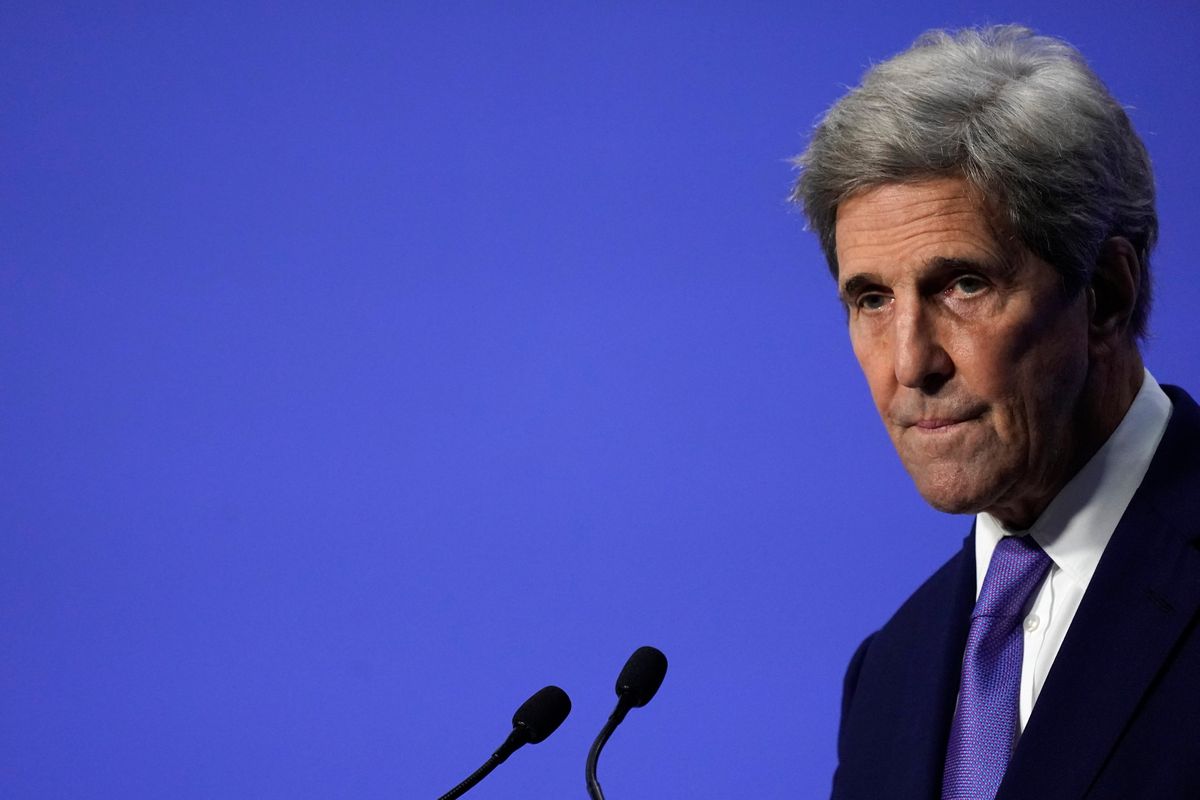Russia gathers with U.S., Europe on climate despite tensions

WASHINGTON — Top diplomats of the United States and the world’s other worst climate-polluting nations talked global warming together Thursday for the first time since November’s U.N. summit, with U.S. climate envoy John Kerry urging tougher commitments by the end of the year from governments falling short on emissions cuts.
The urging came after the U.N. climate summit in Glasgow, Scotland ended with the world still on track to heat up well above the level that the world’s nations have agreed to strive for.
Climate-wrecking emissions surged again last year, mostly due to coal-burning power plants and trucks hauling freight, as the economy rebounds from the pandemic. Meeting the target for staving off more catastrophic scenarios of global warming will require halving emissions by the end of the decade, compared to 2005 levels.
Many of the international diplomats in Thursday’s session “underscored the importance of countries whose 2030 targets are not yet aligned with the Paris goal strengthening them this year,” Kerry said in a statement after the closed-door session.
“One thing is clear: we all must move faster in this decade to accelerate the transition from coal to renewables,” he said.
Russia was among two dozen nations and European and U.N. organizations taking part in Thursday’s virtual climate session. That’s despite heightened tensions among many of those same countries over a Russian troop buildup near the border with Ukraine, and reciprocal steps by the United States and European allies.
The government ministers and others in the closed talks stuck to climate topics, despite the military deployments surrounding the Ukraine standoff, a senior U.S. administration official said.
Kerry and other nations’ diplomats urged governments to cut their use of dirty-burning coal far more quickly, and discussion of getting more countries to join in committing to cut releases of climate-wrecking methane from the natural gas industry.
The U.S. official and one other spoke on condition of anonymity to brief reporters on the closed-door climate session.
Thursday’s session also played to hopes of Biden administration officials and others that even nations at odds with each other over numerous other matters — especially the United States, Russia and China — could stay at least minimally engaged in diplomacy aimed at keeping the Earth’s warming from the burning of fossil fuels below catastrophic levels.
Secretary of State Antony Blinken opened Thursday’s session by stressing what he said were the major climate polluters’ obligations: following through on the specific emissions-cutting and climate aid pledges they made at the Glasgow summit and keep committing to additional bigger, faster steps, the first official said.
Diplomats were also frank about the problems their countries face in meeting their pledges, the official said. That included the representatives of President Joe Biden, who has been unable to get his most ambitious climate legislation through a Senate where Democrats hold the slimmest of majorities.
The session and others that will follow are meant to keep up emissions-cutting momentum internationally between U.N. climate summits.
The session grouped the world’s worst climate polluters and biggest economies with some of the countries most endangered by the warming climate. Participants represented Antigua and Barbuda, Argentina, Australia, Bangladesh, Brazil, Britain, Canada, China, Egypt, the European Commission, France, Germany, India, Indonesia, Italy, Japan, South Korea, the Marshall Islands, Mexico, Russia, Saudi Arabia, Senegal, Turkey, and the United Nations.